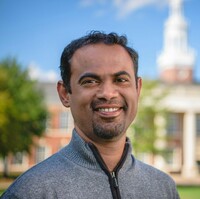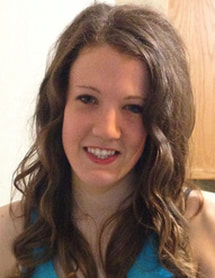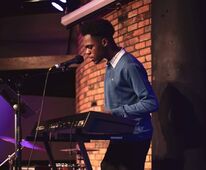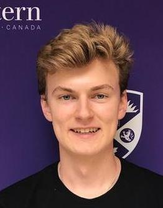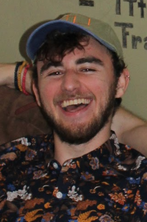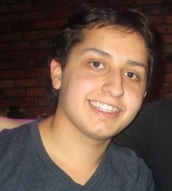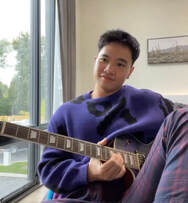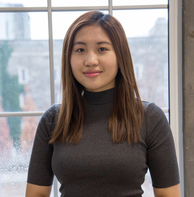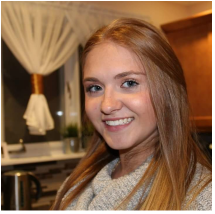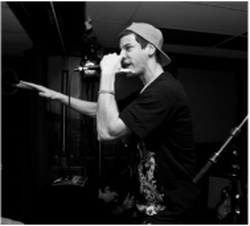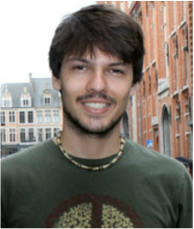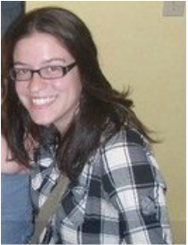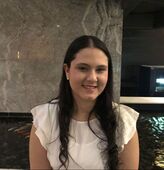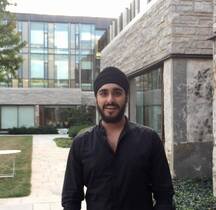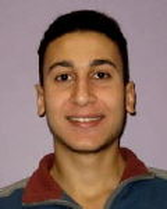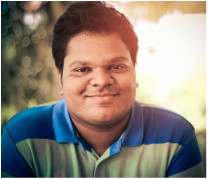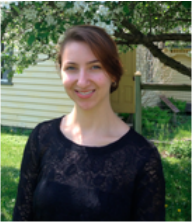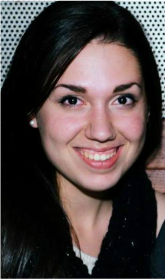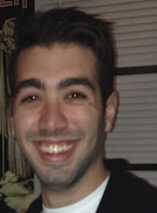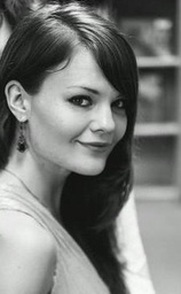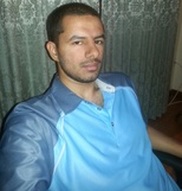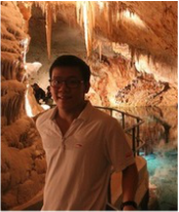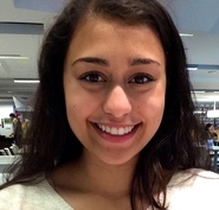Postdocs
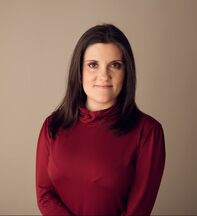
Ana Luísa Pinho
I am a BrainsCAN Postdoctoral Fellow in the Music and Neuroscience Lab as well as Diedrichsenlab since October 2021. My research interests lie in the intersection of functional neuroimaging, data and information science (namely development of ontologies in cognitive neuroscience) and music cognition. After completing my MSc in Engineering Physics at Instituto Superior Técnico (University of Lisbon, Portugal), I enrolled in the BEB PhD Programme at the University of Coimbra in Portugal where I took subsequently the chance to develop my doctoral project at Karolinska Institutet, Stockholm, Sweden under the main supervision of Prof. Fredrik Ullén. My PhD thesis focused in the investigation of the neural correlates underlying creativity within the framework of musical performance, in which I used musical improvisation as behavioral model and functional Magnetic Resonance Imaging (fMRI) as neuroimaging technique to measure brain activity and assess creativity in a large sample of professional pianists. Afterwards, I worked as a Postdoctoral Researcher in the Parietal Team, at NeuroSpin in Paris (France), under the supervision of Dr. Bertrand Thirion for the development of the Individual Brain Charting (IBC) dataset, which refers to an open-access neuroimaging initiative concerning the acquisition and analysis of multitask fMRI data toward the establishment of a neurocognitive atlas of the human brain. Now, I’ll be again combining cognitive-atlassing techniques to fMRI data as means to investigate the cortico-basal ganglia-cerebellar circuitry involved in the cognitive ability of forming temporal predictions during rhythmic and non-rhythmic sequences of events. You can check my website on: alpinho.github.io |

Karli Nave
I have been a postdoc in the Neuroscience and Music lab since January of 2022. Before this, I received my PhD in Psychological and Brain Sciences at the University of Nevada, Las Vegas in 2021. My research investigates how we perceive rhythm in sound, such as in music and language, as well as the underlying neural mechanisms. To this end, I combine imaging approaches with psychological behavioral paradigms to measure brain activity patterns while participants make judgments about auditory rhythms. In one line of research, I investigate how neural patterns of activation entrain to beat and meter in music using EEG, as well as how individual differences in these brain activations are related to other cognitive skills, such as language. In another line of research, I investigate the extent to which neural processes underpinning uniquely human responses to musical rhythm are shared across species using fMRI with both human and non-human primates. Finally, as an advocate for open science practices, I am spearheading a multi-lab replication/extension project in auditory neuroscience investigating entrainment to musical beat, which serves as one of the first pre-registered multi-lab EEG studies to-date. In my free time, I enjoy hiking and camping, spending time with family, and watching American football. |
Graduate Students
Visiting Scholars/Students

Ana Luisa Fredo Marques
I’m an undergraduate Psychology student at the Federal University of Paraná (UFPR) in Brazil, currently working at Grahn Lab as a visiting scholar from Globalink Research Internship (Mitacs). Throughout my academic education, I’ve been involved in research and extension projects related to neuropsychology, mostly under an interdisciplinary approach, which I consider a powerful tool to the development of knowledge across different areas. At UFPR, we are exploring the use of games as a therapeutic tool on a project called “Interludico – Game Based Cognitive Intervention-Therapy”, and I’m interested in the study and understanding how music can also be used in such interventions. I’m so grateful for the opportunity to work at Dr. Grahn’s Lab and unite two passions: Music and the Neurosciences. I hope to contribute somehow to this amazing project and continue studying these fascinating areas.
I’m an undergraduate Psychology student at the Federal University of Paraná (UFPR) in Brazil, currently working at Grahn Lab as a visiting scholar from Globalink Research Internship (Mitacs). Throughout my academic education, I’ve been involved in research and extension projects related to neuropsychology, mostly under an interdisciplinary approach, which I consider a powerful tool to the development of knowledge across different areas. At UFPR, we are exploring the use of games as a therapeutic tool on a project called “Interludico – Game Based Cognitive Intervention-Therapy”, and I’m interested in the study and understanding how music can also be used in such interventions. I’m so grateful for the opportunity to work at Dr. Grahn’s Lab and unite two passions: Music and the Neurosciences. I hope to contribute somehow to this amazing project and continue studying these fascinating areas.
Lab Manager

Catherine Lin
Hello! I finished my fourth year of undergrad of a Honours Specialization in Developmental Cognitive Neuroscience with a minor in biology in 2023. I previously completed a USRI in the Music and Neuroscience Lab last summer, and remained as a volunteer for the academic year of 2022-2023. Having taken years of piano lessons and performed in various elementary and high school ensembles, music has played a significant part in my life. The Music and Neuroscience Lab was the perfect opportunity to combine both my interests in neuroscience and research with my love of music, so the opportunity to complete a USRI was particularly exciting to me. As the lab manager, I’m looking forward to continuing to learn from this experience and to assist the members of the lab (in their research and in an administrative role)! Outside of the lab, I play a number of instruments (at varying levels of skill) and enjoy the occasional video game or two.
Hello! I finished my fourth year of undergrad of a Honours Specialization in Developmental Cognitive Neuroscience with a minor in biology in 2023. I previously completed a USRI in the Music and Neuroscience Lab last summer, and remained as a volunteer for the academic year of 2022-2023. Having taken years of piano lessons and performed in various elementary and high school ensembles, music has played a significant part in my life. The Music and Neuroscience Lab was the perfect opportunity to combine both my interests in neuroscience and research with my love of music, so the opportunity to complete a USRI was particularly exciting to me. As the lab manager, I’m looking forward to continuing to learn from this experience and to assist the members of the lab (in their research and in an administrative role)! Outside of the lab, I play a number of instruments (at varying levels of skill) and enjoy the occasional video game or two.
Honours Thesis Students

Matthew Leung
Hi, I’m Matthew and I am a 4th year undergraduate student pursuing an Honours Specialization in Neuroscience and a Minor in Music Performance on the clarinet. Since a young age, I’ve been heavily involved with playing music and have always had an insatiable interest in how our brains operate. The Music & Neuroscience Lab has not only allowed me to combine my passion and academic endeavours together, but also opened me up to many fascinating discoveries through brain mapping and stimulation. My experience working with Dr. Grahn and various PhDs and graduate students have made me enjoy testing participants and analyzing data. Currently, I’m involved in investigating Music-Based Rhythmic Auditory Stimulation (RAS) in gait in Parkinson’s patients with Kristi, as well as the effects of transcranial direct stimulation (tDCS) on beat stimulation and perception with Karli. I believe research is an unending journey with a sense of commitment and reward, so I hope to continue contributing to the Music & Neuroscience Lab throughout my undergraduate degree!
Hi, I’m Matthew and I am a 4th year undergraduate student pursuing an Honours Specialization in Neuroscience and a Minor in Music Performance on the clarinet. Since a young age, I’ve been heavily involved with playing music and have always had an insatiable interest in how our brains operate. The Music & Neuroscience Lab has not only allowed me to combine my passion and academic endeavours together, but also opened me up to many fascinating discoveries through brain mapping and stimulation. My experience working with Dr. Grahn and various PhDs and graduate students have made me enjoy testing participants and analyzing data. Currently, I’m involved in investigating Music-Based Rhythmic Auditory Stimulation (RAS) in gait in Parkinson’s patients with Kristi, as well as the effects of transcranial direct stimulation (tDCS) on beat stimulation and perception with Karli. I believe research is an unending journey with a sense of commitment and reward, so I hope to continue contributing to the Music & Neuroscience Lab throughout my undergraduate degree!
Independent Study Students
Connor Wotton
USRI Summer student.
USRI Summer student.
Work Study Students/ Research Assistants/Internships/Summer Students
Alumni
Postdocs

Thibault Chabin
I received a Ph.D. in Neuroscience at the University of Burgundy-Franche Comté (FRANCE) and joined the Grahn lab in January 2022. I am especially interested in the music reward system, my research focuses on how people share emotions and how the social context affects the processing of abstract rewards such as music. My past research investigated the emotional synchrony of people attending a concert together by estimating the physiological and Interbrain synchrony in an EEG hyperscanning study. Here I will investigate how the “social hormone” oxytocin can affect the processing of various types of rewards including abstract musical rewards and how this pharmacological intervention coupled with social modulations can affect the overall musical emotional experiences. I will also investigate the relationships between rhythmic irregularities, groove, and musical pleasure in various auditory and naturalistic musical listening tasks. Besides my research activities I am also a musician, I completed the third cycle of French conservatories (Euphonium) and play bass guitar. 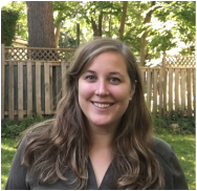
Christina vanden Bosch der Nederlanden
I began working as a postdoc in the Neuroscience and Music lab and the Language, Reading, and Cognitive Neuroscience lab in August of 2016. My research investigates how we make sense of the sounds around us by considering how low-level (e.g., acoustic characteristics) and high-level (e.g., attention, experience, context) factors contribute to auditory processing. These factors are particularly interesting to examine during human development, when children are learning how to process and extract relevant information from everyday sounds, like music, language, and other environmental sounds. As such, I study how listeners of all ages process acoustic features, like pitch and rhythm, and apply music-, language-, or context-specific knowledge under different testing conditions. Here at Western, I am able to bridge the research interests of both labs by using EEG to study how children with and without reading deficits entrain to the rhythms of speech and song. I received my Ph.D. in 2016 from the University of Nevada, Las Vegas in Experimental Psychology with a Developmental emphasis. 
Molly Henry
I am a postdoc in the Music and Neuroscience Lab since January 2015. I am interested in how synchronization between brain rhythms and environmental rhythms (for example, musical rhythm) shapes auditory perception. I am particularly interested in whether and how synchronization of brain rhythms with musical rhythms gives rise to the perception of a “beat”. In the long run, I am interested in how individual differences in brain–environment synchronization might lead to impairments that accompany aging or disordered states. Before arriving at Western, I was a postdoc in the Max Planck Research Group “Auditory Cognition” at the Max Planck Institute for Human Cognitive and Brain Sciences in Leipzig, Germany. I received my PhD in Experimental Psychology in 2011 from Bowling Green State University. Coming to Western has given me a unique opportunity to bring together my expertise in analysis of brain signals with my original interests in rhythm and music perception. Molly Henry's Webpage 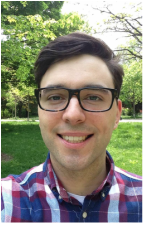
Eric Taylor
I am a post-doctoral fellow in Jessica Grahn's Music and Neuroscience Lab at the BMI, having recently joined in September 2016. I completed my PhD at Purdue University in 2013, studying the relationship between perception, action, and attention. Some of my work from that time focused on the observation of action and its related representations in music and visual art. Musicians in particular are an ideal population to study perception-action links because they have spent years establishing very specific and practiced action-effect outcomes. Studying expert populations gives us insight into the mental and neural representation of music, and more broadly, action. Recently, I completed a post-doctoral fellowship at the University of Toronto, where I conducted research on visual attention. Joining Jessica's lab has opened up wonderful opportunities to incorporate neuroscientific methods into my research. Eric Taylor's Webpage 
Li-Ann Leow
I recently joined the lab as a post-doctoral research fellow after completing my PhD in the University of Western Australia late 2012. My PhD work showed that Parkinson's disease results in a selective deficit in retaining motor learning acquired from updating an internal model, despite intact ability to update an internal model during motor learning. I am currently examining how synchronizing movements to music could alter movement kinematics in Parkinson's disease and in neurologically intact controls. I am also interested in further exploring the basal ganglia's role in predicting and/or maintaining an internal model of the beat. |

Swathi Swaminathan
I am a postdoc in the Music and Neuroscience Lab as well as the Köhler Memory Lab since August 2020. Before this, I completed postdoctoral work at Baycrest Hospital and the Toronto Rehabilitation Institute. I received my doctoral degree in psychology from the University of Toronto. My research seeks to understand how musical and other artistic endeavours relate to cognitive development and change across the lifespan, and I explore these questions using a combination of basic research (carried out in lab settings) and applied research (carried out in community settings). For example, in past work I have explored basic theory-focused questions such as the modularity (or relative independence) of music and language in children and adults’ minds, and the relative contributions of training and aptitude in the development of music-perception skills. I have also worked on applied research asking whether virtual interventions can improve the wellbeing of older adults in care settings by improving their access to art in museums and arts-based recreation more generally. Currently, I am again combining basic and applied research techniques to study the psychological and neural mechanisms by which music cues autobiographical memory even in dementia, and whether music-listening interventions can have positive long-term impacts on autobiographical memory for people living with dementia in the community. Besides being a central focus of my research life, music is also a constant avenue of personal learning. Although I do not have as much time these days to sing for audiences, I do still train in an old form of North Indian classical music called Dhrupad with the renowned singer, Pt. Uday Bhawalkar. 
Emily Ready
I am an occupational therapist and have a PhD in the Health and Rehabilitation Sciences program at Western as part of the Combined MScOT/PhD program. In 2013 I finished my Bachelor of Arts in Honours Psychology at St. Thomas University with a research focus on the fallibility of eyewitness testimonies and uptake of this information within the judicial system. My current work stems from collaboration between Health Sciences and Psychology with joint-supervision from Dr. Jessica Grahn and Dr. Jeffrey Holmes. My dissertation is a collection of clinically-oriented studies investigating music-based rhythmic auditory stimulation (RAS) as a technique for gait rehabilitation in Parkinson's disease. Specifically, the project explores the properties of music-based RAS (e.g., groove, familiarity) that drive changes in gait patterns and how they interact with individual beat perception abilities and task instruction (demand to synchronize or walk freely). The ultimate goal of the project is to develop clinical recommendations on how to individualize and maximize therapy for people living with Parkinson's disease and to increase general knowledge of the relationship between music and movement. 
Lucy McGarry
I began my postdoc in the Music and Neuroscience lab here at the BMI in January, 2015. My research focuses on the interplay between music, movement, and perception. Some of my research questions include: Does dancing or singing to music affect perception, memory, or emotional experience of the music? Does synchronous movement facilitate emotional communication? Does moving to music support proper movement execution? Currently I am involved in studies examining the role of singing in memory for song lyrics, the effect of music-based training on walking in Parkinson’s, and the brain mechanisms of memory for music in healthy adults and patients with Alzheimer’s. I did my PhD at Ryerson University in Toronto, examining the role of motor regions of the brain in emotional understanding of music and other audio-visual signals. I also designed an app that uses music and movement to help kids with autism understand emotions. My research methods involve EEG, fMRI, and behavioral measures, and I enjoy taking on new data analysis challenges. At the Grahn lab, I have the exciting opportunity to pursue my love of music, dance, and science at once. 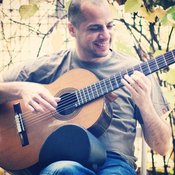
Demian Kogutek
I am an accredited music therapist with the Canadian Association for Music Therapy and a PhD candidate in the Health and Rehabilitation Science program at Western. I began my formal music studies at Juan Jose Castro Conservatory of music in Buenos Aires, Argentina, at the age of fifteen. In 2009, I graduated from the Honors Bachelor of Music Therapy program at University of Windsor and the Master’s of Music Therapy at Wilfred Laurier University in 2011. My main instrument of practice is classical guitar; but comfortable playing a myriad of instruments and voice. I have experience working in geriatrics, oncology, and palliative care clients in long-term care, hospital, and hospice settings. My current work stems from collaboration between Health Sciences and Psychology with co-supervision from Dr. Jessica Grahn and Dr. Jeffrey Holmes. My research area of interest is motor improvement through participant’s active use of musical instruments in improvised music therapy sessions for those with physical impairments resulting from neurological conditions. |
Alumni
Visiting Scholars
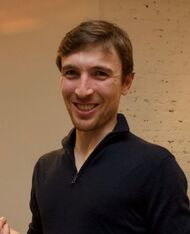
Levi Satter
I am an international undergraduate researcher joining the lab through the Fulbright Canada Mitacs Globalink program. My home university is Brooklyn College in the United States. I am analyzing data from previous tDCS and beat reproduction experiments under the guidance of Josh Hoddinott. Further I am examining the nuances of neural stimulation within the literature. Through in-depth statistical analysis and theoretical exploration, I aim to identify novel avenues for future music-based neural stimulation research. 
Anne-Kathrin Brehl
I am a visiting PhD from the Donders Institute in the Netherlands. I first completed a Master of Arts with classical piano as a major. Lectures on music cognition had triggered my interest in cognitive sciences, so I enrolled for psychology and graduated with a Master’s in psychology at Hamburg University in 2016. I received a stipend of the German Academic Exchange Services (DAAD) to follow an additional one-year Master’s program in cognitive neuroscience in London, UK. For my PhD at the Memory & Emotion lab at the Donders institute, I investigate neural biomarkers of anxiety by applying fMRI in combination with a range of physiological measurements. Preliminary results of my first studies indicate that individuals differ in terms of neural mechanisms underlying symptoms of anxiety. At the Grahn lab I am setting up a project on stage anxiety. In this study, we aim to characterize neural biomarkers of anxiety in musicians with stage anxiety in order to relate cognitive and physiological aspects of stage anxiety to specific neural biomarkers in the individual. https://www.ru.nl/donders/research/theme-3-plasticity-memory/research-groups-theme-3/memory-emotion 
Cécile Gasser
I'm a student coming from France and I'll be in the lab for 2 months. Next year I'll obtain my engineer's degree in Biology where I would like to continue my studies in Neurosciences. It is a real opportunity to work here in the lab, allowing me to consolidate my passion for both music (I play flute, cello and piano) and brain studies. I am currently working with Avital on her Music and Memory project. 
Sanjana Sanghani
Hi! I am a rising high school senior, and I attend Saint Francis High School in Mountain View, California. I have always been very interested in biology, psychology; and more specifically, neuroscience, and plan to pursue a career in medicine someday. I am also very passionate about music, and have been a student of music my entire life. I took a course in Cognitive Neuroscience at UC Berkeley last summer, which piqued my interest in research on music and its effects on brain. The research Dr. Grahn has been pursing also rings in with the work I have participated in with developmentally disabled children; I have noticed how music quite clearly has a therapeutic effect on them, both physically and emotionally, which I find very fascinating. I am so excited that I came across Dr. Grahn's research, and I am very grateful to have been given the opportunity to participate in her research efforts in whichever way I can. I look forward to working in the lab and learning a lot! |
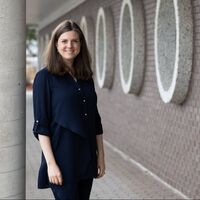
Dr. Christine Carter
Christine is interested in how musicians can be more effective on stage and in the practice room. She currently hold a SSHRC Insight Development Grant with co-researchers Dr. Jessica Grahn and Dr. Jonathan De Souza to investigate music practice strategies. She is particularly interested in the application of “desirable difficulties” to music learning. Her research has led to a variety of publications and invitations to give workshops at dozens of institutions around the world. Christine is also an active clarinetist. Performances have taken her across the globe, from Carnegie Hall to the Sydney Opera House. Her recordings on Marquis Classics and Coviello Classics are regularly heard nationally on CBC radio. She completed her Doctor of Musical Arts at Manhattan School of Music, where she taught the Woodwind Lab for 4 years, and is now Associate Professor of Music at Memorial University in Canada. Christine is a Buffet Crampon Artist. www.christine-carter.com 
Anne-Maude Patouillard
I am a Visiting Graduate Student at the Neuroscience and Music lab since January 2017, coming from France. I have completed my master of Medicine in Grenoble and just took a year out of my studies before starting my final year. This time off gives me the opportunity to work in this fascinating field of neurocognition of music. My interest is mostly in the clinical application (e.g. Parkinson's disease) that could arise from research about how music and rhythm are perceived, processed in the brain, and how this is connected to movements. The study I'm involved in deals with how music can affect gait pattern and which music parameters are involved (e.g. Groove, familiarity, instructions given like synchronization of the footfalls with the beat or free-walking), in healthy older adults and then in Parkinson's patients. I'm excited about those next months in Grahn Lab, conciliating my passion for music (I love singing, playing the piano and the clarinet) and science. 
Anjali Rose Kumar
Hey my name is Anjali Rose Kumar, I'm a psychology major and musician in Northampton Massachusetts at Smith College. I spent this summer in the Grahn lab with hands on experience running participants in studies regarding RAS (rhythmic auditory stimulation) and gait, and tDCS (trans cranial direct-current stimulation). Before coming here this summer, I only read about music cognition research in text books and online so it was cool to see the process that goes into creating the literature we digest as undergraduate students and learners. I have no clue what life has in store for me with my lost 21 years of age but this experience has validated my love for music and how the mind perceives it and how it can be used a tool for healing. In fact my next pursuit of exploration lies in music therapy because of what I was exposed to in this lab! 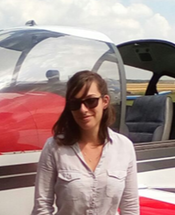
Marion Gasselin
Hi everyone ! My name is Marion. I just completed my undergrad in Biochemistry at Rouen-University in France and I will start my Masters in Neurosciences next September. I have always been fascinated by the brain and how it works. I also play piano so the Grahn lab combines both of my passions : Music and Neurosciences and this is why I choose to do my internship in this lab. I am really excited to work here for two months and I know I am going to learn so many things that will help me in my further studies. I am also really grateful to have the chance to work with this incredible team. |
Alumni
Lab Managers
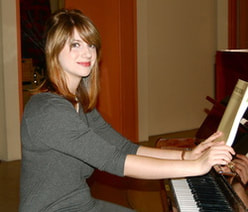
Sarah Lade
My name is Sarah and in the lab was spent as both lab manger and research assistant. I completed my Honours B.Sc. in Psychology, Neuroscience and Behavior at McMaster University with a specialization in Music Cognition. My senior thesis project explored how social perception during infancy is influenced by synchronous movement with a partner. I am helping the lab with a project on the effect of various musical cues, such as groove (the quality of music that makes one want to move to it), enjoyment, familiarity and arousal upon gait quality in young and older adults, along with Parkinson's Disease patients. I am thrilled to be working with the Grahn lab and look forward to what the future holds!
My name is Sarah and in the lab was spent as both lab manger and research assistant. I completed my Honours B.Sc. in Psychology, Neuroscience and Behavior at McMaster University with a specialization in Music Cognition. My senior thesis project explored how social perception during infancy is influenced by synchronous movement with a partner. I am helping the lab with a project on the effect of various musical cues, such as groove (the quality of music that makes one want to move to it), enjoyment, familiarity and arousal upon gait quality in young and older adults, along with Parkinson's Disease patients. I am thrilled to be working with the Grahn lab and look forward to what the future holds!
Alumni
Grad Students

Abdullah Al Jaja
I have completed my undergrad with an Honors specialization in Interdisciplinary Medical Science (IMS). I have started my Masters in Neuroscience at the Brain and Mind Institute working with Parkinson’s patients and rolled-over to a Ph.D. in the same program afterward. My main goal is to test the cognitive aspect of Parkinson’s disease on different medication states and to tease apart the effect of Parkinson’s disease on the one hand and dopaminergic replacement on the other. My primary project is to test brain response to different tone pips and detect the level of synchronization with such tones using electroencephalography (EEG). I am also investigating genetic polymorphisms that might result in higher or lower dopaminergic signaling depending on different dopamine receptors and its effect on cognition in both Parkinson’s disease patients and healthy controls. Another future project is to study the influence of anxiolytics on gait, in particular, freezing of gait in Parkinson’s patients. The Grahn lab is one of the leading labs in gait research. I believe that the Grahn lab will give me a great opportunity to further expand my research options and help me with my Ph.D. in the coming years. 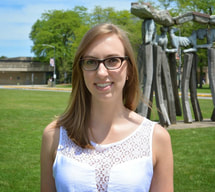
Avital Sternin
I am a PhD student in the lab in the Behavioural and Cognitive Neuroscience stream of the Psychology program. I received my MSc in the same program here at Western in 2016, and my BSc in Neuroscience from Brock University in 2014. I am interested in exploring the effects of music on cognition and learning how this knowledge can be translated into clinical populations (e.g. Alzheimer's, dementia, TBI). 
Sarah Klapman
I am a a first-year Master's student in Neuroscience at Western University. I studied classical voice (B.Mus.) and psychology (B.A.) at Mount Allison University in Sackville, N.B., where I completed music cognition research on the role of audiovisual influences in pitch-space associations. I am interested in the neural correlates of music and memory, especially as they pertain to people experiencing dementia. Under the joint supervision of Drs. Jessica Grahn and Ingrid Johnsrude, I'm excited to learn more about why music is preserved in dementia, even when other fundamental cognitive functions are lost. The end goals of this research are 1) to address some of gaps in the current music neuroscience literature, and 2) to provide information and concrete tools for older adults and their caregivers to maintain and improve quality of life. 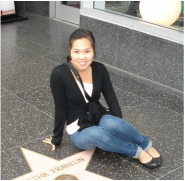
Tram Nguyen
I am a PhD candidate in the Psychology program at the University of Western Ontario. I am proud to say that I have always been a Mustang as I have also completed my Bachelor of Science and Master of Science degrees at Western. I have been working with Dr. Grahn since September 2010. Together we examined the effects of music on learning and memory. My doctoral research will be an extension of my Master’s research and will explore how specific properties of music, particularly those that modulate mood and arousal, influence cognition (including memory, reasoning, attention, and planning). Although I work and surround myself with music every day, I do not possess a musical bone in my body (unless you count the recorder – and I am not very good at that)! 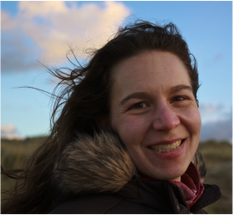
Fleur Bouwer
My name is Fleur Bouwer and I am visiting the Grahnlab in the fall of 2013 as part of the PhD research I'm doing under supervision of Prof. Henkjan Honing at the University of Amsterdam, the Netherlands (see mcg.uva.nl). My research aims at uncovering the workings of beat perception in general and the role of attention in beat perception in particular. I use EEG to answer these questions and my visit to the Grahnlab will allow me to also use fMRI, which will help us to look at these questions from a different angle. I have an MSc in Psychology and a Masters degree as a performing clarinetist. When I'm not trying to figure out how our brains deal with the beat in music (which is a fairly spectacular ability if you think about it!), you can still find me on stage carrying a clarinet around on a regular basis. 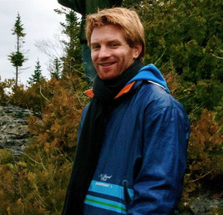
Dirk Schuit
Music has always interested me. I listen to it daily, play acoustic and electronic percussion, and compose music on my laptop. Now, I also study the brain's processing of rhythmic information as a PhD candidate under Dr. Grahn. After graduating high school, I had to decide between pursuing a career as a professional percussionist or a degree in biological psychology. At Maastricht University (Netherlands), I completed my bachelor's and masters program (cum laude) in psychology and cognitive neuroscience. During my master's internship under Dr. Grahn, I can finally combine music and cognitive neuroscience, my two greatest affections. Thankfully, I received the opportunity to continue working on this mixture of passions at Western University, and get to know a new continent in the process. |

Syed Raza
I am a Master of Science student in the Neuroscience department at Western University. I completed my BSc in Neuroscience at Brock University, where I did research in the Biomechanics and Motor Control Lab as part of my undergraduate thesis. I am broadly interested in the motor systems of the brain, including the connection between these systems and the perception of rhythm. I hope to explore this connection in depth during my Master's degree in the Grahn Lab. Any potential findings in this area would lead to a better understanding of the functions of the motor areas of the brain, as well as the mechanisms through which rhythmic stimuli are perceived by humans. 
Aaron Gibbings
I am a PhD student in the Behavioural and Cognitive Neurosciences program in the Department of Psychology at the University of Western Ontario. I also received my Masters of Science at Western, and my Bachelor’s of Arts, Honours Specialization in Psychology from King’s University College at the University of Western Ontario. I am interested in investigating the neural correlates of beat perception using electroencephalography, and I have always been curious about people’s preferences and ability to hear complexities in music. More specifically, I am interested in the effect of attention and musical experience on people’s perception of music and rhythm. The only thing I like more than listening to music is playing music. I have had years of both formal and informal training on a number of different instruments. 
Brendon Samuels
I graduated from the University of Guelph with a Bachelor of Science Honors degree in biological sciences in 2014 where I specialized in the study of the brain and cognition. My senior undergraduate research project concerned topics in learning and visual cognition. I am currently a Master’s of Neuroscience student at the University of Western Ontario. I will be collaborating between the labs of Dr. Grahn and the Advanced Facility for Avian Research as I develop my master’s thesis project. My research involves the study of auditory cognition in songbirds; specifically, I am interested in whether starlings are able to perceive rhythm in auditory stimuli, and identifying what structural aspects of an auditory stimulus affect their perception. Select bird species are among the few vocal-learning animals, including humans, that are capable of following a beat, though the mechanisms underlying this capability are not yet understood. Like many other members of this lab, my upbringing contributed to my academic interest in music: I am classically trained in piano, and also dabble in violin, saxophone and ukulele. 
Brittany Roberts
In June 2015 I received a Bachelor of Arts, Honors degree with a major in Kinesiology and a major in Psychology from Brescia University College. Currently, I am a Master’s of Neuroscience student at Western University. I have an interest in Neuroscience since it is the combination of biological and psychological fields of study. My research involves studying the influence musical properties (i.e., groove, enjoyment, and familiarity) have on human movement, specifically gait. Music has always been an active part of my life from singing in church choirs to playing the violin, flute and acoustic guitar. Therefore, I look forward to investigating the neuroscientific aspects of music as well as the therapeutic potential music may have in special populations. 
Dan Cameron
I’ve been working in the lab as a PhD candidate in Neuroscience since 2012, and my research investigates the brain mechanisms underlying the perception and behaviour associated with musical rhythm. I’m particularly interested in the ability to hear and feel the ‘beat’ in musical rhythms and the diversity of contexts in which this occurs in the real world. Before coming to Western, I completed a BMus in percussion performance at the University of Toronto (2007), studied biopsychology at the University of Winnipeg, and completed an MSc in Music, Mind, and Brain (2011) at Goldsmiths (University of London). My research uses a variety of methods (including behavioural methods, TMS, EEG, and fMRI), and covers a variety of topics related to rhythm (including neural entrainment to the beat, how beat perception unfolds over time, beat perception in metrically ambiguous contexts, the influence of culture and expertise, and changes in motor system excitability due to beat perception). I’m grateful for the opportunity to work with Dr. Grahn at the Brain and Mind Institute, and for support from NSERC. Email me! [email protected]. 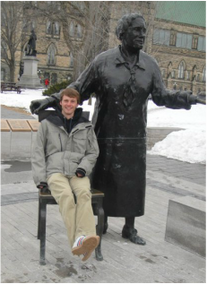
Taylor Parrott
I am a Master’s student in Neuroscience at The University of Western Ontario. I completed an undergraduate Honors Specialization degree in Medical Sciences at Western. I am interested in the neural components of musical rhythm. My work examines the flexibility of a beat based rhythm and the involvement of the basal ganglia. In addition, I also study how Parkinson’s patients encode rhythms and if they can synchronize motor movements to certain components of music. For more information on my Master's project, click here. When I am not in the lab I enjoy whistling like the birds on snow white and the seven dwarfs and playing my trumpet. |
Alumni
Research Assistants
Alumni
Honours Thesis/Independent Study Students

Karen Stoskopf
Hi! I am a fourth year honours thesis student working towards my Bachelor of Science with an Honours Specialization in Physiology and Psychology. I was interested in doing research in the Grahn lab because it bridges the physiological and psychological aspects of my degree. By combining this with music I think you get an exciting and intriguing research topic! My thesis project is to investigate potential mechanisms for musical stream segregation, in other words to better understand how the brain is capable of separating multiple streams of music playing at once. More specifically, I will be looking at the effects of familiarity on musical stream segregation. 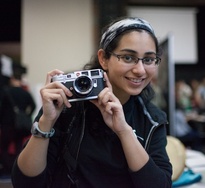
Sonam Maghera
Hi all! My name is Sonam and I am a fourth year honors student completing my BMSc, Honors Specialization in Physiology. Having limited experience learning about the brain, I gravitated towards pursuing an honors thesis in Dr. Grahn's lab. The combination of how music and the mind work together is truly interesting, especially since very little is known about this field. My project is looking to determine beat perception in primate species. Can non-human primates detect the underlying beat in a rhythm, or is this ability uniquely human? You can find my thesis here. When I'm not working in the lab or on school work, you can find me with a camera around my neck, walking around campus! 
Heather Khey Beldman
I'm a fourth year undergraduate student in the Hon. Spec. Physiology & Psychology program at the University of Western Ontario. Under Dr. Grahn's supervision, I will be working on a thesis project that investigates the multi-modal (auditory, visual, and tactile) nature of beat perception and synchronization (BPS). Click here for more information on my project. I'm mainly interested in the field of Neuroscience, being equally fascinated by the workings of the brain and mind. 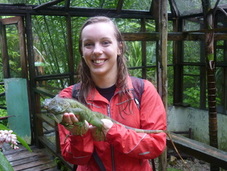
Kristina Waclawik
I am in my fourth year of my B.A., completing an Honors Specialization in Psychology and Minor in History at Huron University College. Although my musical experience is limited to high school clarinet and a Grade 3 in piano, I've often been interested in music's ability to be a powerful modulator of our mood. I am currently conducting my honors thesis under the supervision of Dr. Li-Ann Leow on the effects of music-induced valence on sensorimotor adaptation. Participants listen to low-arousal, positively- or negatively-valenced music while completing a visuomotor adaptation task in which they reach from a start point to a target and adapt their movements to a distortation in the visual feedback of their movements. We are interested in seeing how music affects the adaptation and retention of the adaptation. |

Rebecca Woelfle
Hello! I am a recent graduate of the University of Western Ontario, with a Bachelor of Science, Honours Specialization in Biology. This past year, I completed an honours thesis project under Dr. Grahn’s supervision, and examined the inter-hemispheric transmission times of visual and auditory modalities in musicians and non-musicians. My future prospects include obtaining a M. Sc., particularly for research in neuroscience. Some of my interests include skiing, travelling, and of course, music. 
Ashley Perl
I completed my Honors thesis, "Who's got the rhythm?: Individual differences in rhythmic ability," last year with Dr. Grahn. To specify, the thesis project looked at what factors may contribute to someone having a sense of rhythm. The project can be viewed here. I am returning to London for the Fall semester and wanted to continue working with Dr. Grahn in the lab. Some interests outside of school include snowboarding, SCUBA diving (certified PADI Advanced Open Water Diver), travelling to new places, and music (naturally). 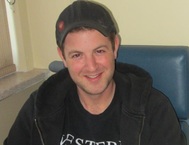
Paul Armstrong
Hi All!! I’ve recently graduated from Western with a Specialization in Psychology (B.A. Hons.). I completed my fourth year honors thesis project with Dr. Grahn. The project investigated music-dependent memory (MDM), which is the concept that music can serve as an effective retrieval cue for previously learned information. If you’re interested, the entire thesis and supplementary materials (i.e., data, poster, stimuli, etc.) can be viewed here. Since graduating from Western, I've been working as Dr. Grahn's research assistant and lab manager. I will be attending law school at the University of Ottawa this September. 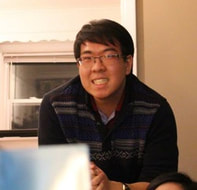
Victor Wu
Hi! My name is Victor Wu, I’m a fourth year student in the process of completing my Honors Specialization in Physiology and Pharmacology. I started working in the Grahn lab at the beginning of the school year as a thesis student and am enjoying the experience! I’m working with Dan to investigate how the beat of music can change the excitability of the brain’s motor areas, as well as the timing of this modulation. Music had always been a large part of my life, though I did mostly give up playing the piano and saxophone when I moved to London for university. I’m grateful to work in the Grahn lab, as it has reconnected me with my musical side while giving me the chance to gain a comprehensive research experience. I look forward to my time here and can’t wait to contribute more to the lab! |











